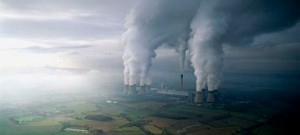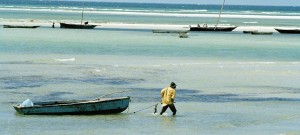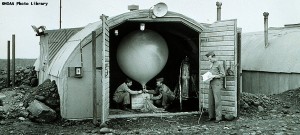Research
Black carbon could impact atmospheric warming less than previously thought, say researchers
New study questions assumption that tackling black carbon, i.e. soot, could bring relatively quick gains to efforts to combat climate change.
Arctic sea ice reaches record low, says NASA
Arctic sea ice is lower than at any other point since satellite records began, according to NASA, representing a new norm for the region.
Rapid warming in the Antarctic could destabilise thousand year old ice shelves, say scientists
Scientists find rapid warming over last 50-100 years contributed to the collapse of ice shelves witnessed over last 20 years, warning of more occurrences with future warming.
Geoengineering scheme could “balance global warming” in a world with double pre-industrial CO2
“Marine cloud-brightening” method to trigger cloud formation by spraying sea water into the atmosphere could reflect enough solar radiation away from earth to negate effects of climate change.
Nobel prize winning scientist says global tax on emissions vital to deal with climate change
Mario Molina calls for price on global greenhouse gas emissions and warns of possibility of climate ‘catastrophe’
Adaptation focus: How ecosystem based solutions are bearing fruit in Xai Xai, Mozambique
Dr Richard Munang from the UNEP explains how Ecosystem-based Adaptation can help people and communities cope with the negative effects of climate change.
Arctic sea ice could shrink to record lows, says polar scientist
Ted Scambos from the US National Snow and Ice Data Centre warns that Arctic sea ice could shrink to record lows next week, and then continue to melt for the rest of the summer months.
Giant ‘shade cloths’ could be used to save coral from climate change
New study says fixing giant shade cloths over the Great Barrier Reef should be considered to help save coral from the effects of climate change.
Australia’s acute water shortages mapped
Projected Australian water shortages suggest governments of future will have to ration water between mining, agriculture and major cities.
New Ocean Health Index shows “room for improvement”
New index aimed at scoring every coastal nation in the world on their contribution to the health of oceans finds a global average of 60 out of 100.
Melting over Greenland ice sheet shatters record, say scientists
Latest data shows melting over the Greenland ice sheet in 2012, has surpassed previous seasonal records – four weeks before the melting season is expected to end.
New research: Oceans swamped with fresh water make tropical storms 50% more intense
New research finds fresh water in the oceans from rivers and rain could make tropical storms more intense, but what could this mean for a warming world?
Arctic could be ice-free in summer by end of the decade, according to European Space Agency
Images from polar satellite suggest sea ice in the Arctic could be disappearing at a rate 50% higher than previously predicted.
Why climate change was a concern in 1943
George Kimble’s ‘The Weather’, first published in 1943, reveals that climate change was a concern over 70 years ago.
Greenland ice loss comes in fits and starts say scientists
New research finds Greenland’s ice sheet melt could happen in short bursts, showing that the melt witnessed between 2005 and 2010 may not have been unprecedented.
Oceans, forests and ecosystems continue to soak up rising man-made carbon emissions, for now, say scientists
New research shows that while a slow down of carbon absorption of the planet’s ecosystems is projected, today they continue to keep up with the rising levels of emissions being released into the atmosphere.
Report: World’s air pollution could be as bad as China’s by 2050 without urgent action from governments
Research in Atmospheric Chemistry and Physics journal suggests pollution and toxins in air could be ‘normal’ if new regulations are not adopted
Berkley Earth: Average temperature of the Earth’s land has risen by 1.5 °C over past 250 years
Study led by climate sceptic scientist Richard Muller concludes that human Co2 emissions are best explanation for climate change
Scientists discover how carbon is stored in the Southern Ocean
New research examining how the Southern Ocean absorbs CO2 reveals that winds and currents create pathways for carbon to be stored in the deep ocean regions.
NASA reports “extreme melt” of Greenland ice sheet underway but climate change link unconfirmed
Indian/NASA collaboration reveals 97% of ice surface area has begun to melt, more than double the usual extent during summer. However, more data required to attribute melting to climate change.


